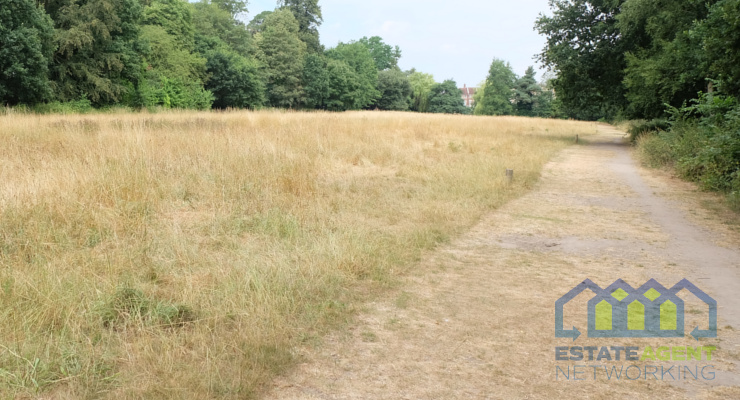Padel Boom Sparks 113% Surge in Planning Applications
17,000 UK Sites Ripe for Development
New insight from Searchland reveals that planning applications for padel courts surged by more than 113% in 2024, with the upward trend expected to continue throughout 2025. The explosive growth of the sport in the UK has unlocked a wealth of potential for developers and investors, with Searchland estimating there are almost 17,000 prime locations already ripe for padel development.
Padel is a fast-paced racquet sport that blends elements of tennis and squash. It requires minimal space and infrastructure with two padel courts fitting within the footprint of one tennis court, and an enclosed design that allows for high-intensity gameplay.
The sport has exploded in popularity in Britain over recent years and is one of the fastest growing sports in the country. The Lawn Tennis Association (LTA) says that at the end of 2024, over 400,000 people in Britain played padel, up from just 89,000 in 2021. This rapid growth in popularity, alongside the relative ease and affordability with which padel courts can be created, makes them a strong investment opportunity for the private businesses and local councils alike.
It should come as no surprise, therefore, that padel-based planning applications have also soared over the past few years.
Padel planning applications soar
Searchland’s planning application data shows that in 2021, there were just 53 padel planning applications submitted in the UK. The following year, this increased by 55% to total 82 applications, before 2023 saw explosive growth of 99% (163 applications).
2024 recorded an even larger increase of 113% (348 applications), and so far in 2025 there have already been 295 submissions which Searchland estimates will rise to 544 by the end of the year, marking annual growth of 56%.
However, Searchland’s unique planning and land data insight has now revealed that the scope for padel expansion is greater than anyone probably thought.
Existing padel destination opportunities
Searchland estimates that there are currently 16,851 “existing destination padel opportunities” in the UK. These are existing sporting locations that are already well-suited to introducing padel courts, such as golf courses, racquet clubs, and football facilities, that have unused land such as car parks or flat greenspace, and are located in areas such as towns cities where demand for padel is likely to be strong.
1,086 of these destinations are in London, 47 of which have already submitted padel planning applications to the local planning authority.
Elsewhere, Bristol has 206 existing opportunities, followed by Edinburgh (189), Leeds (129), and Manchester (128).
Conversion opportunities and short-term investment opportunities
Searchland defines padel “conversion opportunities” as existing commercial properties where the building or land is appropriately sized for padel conversion and located in an area that should have a captive audience.
Searchland estimates that there are 15,742 such locations in the UK, with the largest numbers found in London (929), Manchester (468), Leeds (360), Birmingham (346), Bradford (320), and Sheffield (229).
Finally, Searchland analysed the UK’s number of what it calls “short-term padel investment opportunities”.
These are large development sites with recently submitted planning (2025), such as housing estates, that have long build schedules, and on which pockets could be carved out for padel courts on a short-term basis while waiting for completion of the wider development project. These could then be dismantled when the project arrives at a time when it needs the space back, or woven into final plans if the developer wishes.
Searchland has identified 674 such opportunities in the UK right now, 151 of which are in London, while Bristol has 16 and Birmingham has eight.
Co-founder of Searchland, Hugh Gibbs, commented:
“Padel’s extraordinary rise in popularity isn’t just a cultural trend, it’s a powerful signal to landowners, developers, and local authorities.
The combination of surging participation, relatively low setup costs, and strong ROI potential makes padel an ideal addition to both temporary and permanent development plans.
The fact that there are nearly 17,000 sites already primed for padel across the UK shows just how much untapped opportunity is out there. For investors and landowners looking to maximise land use or diversify leisure offerings, this is the time to act.”









